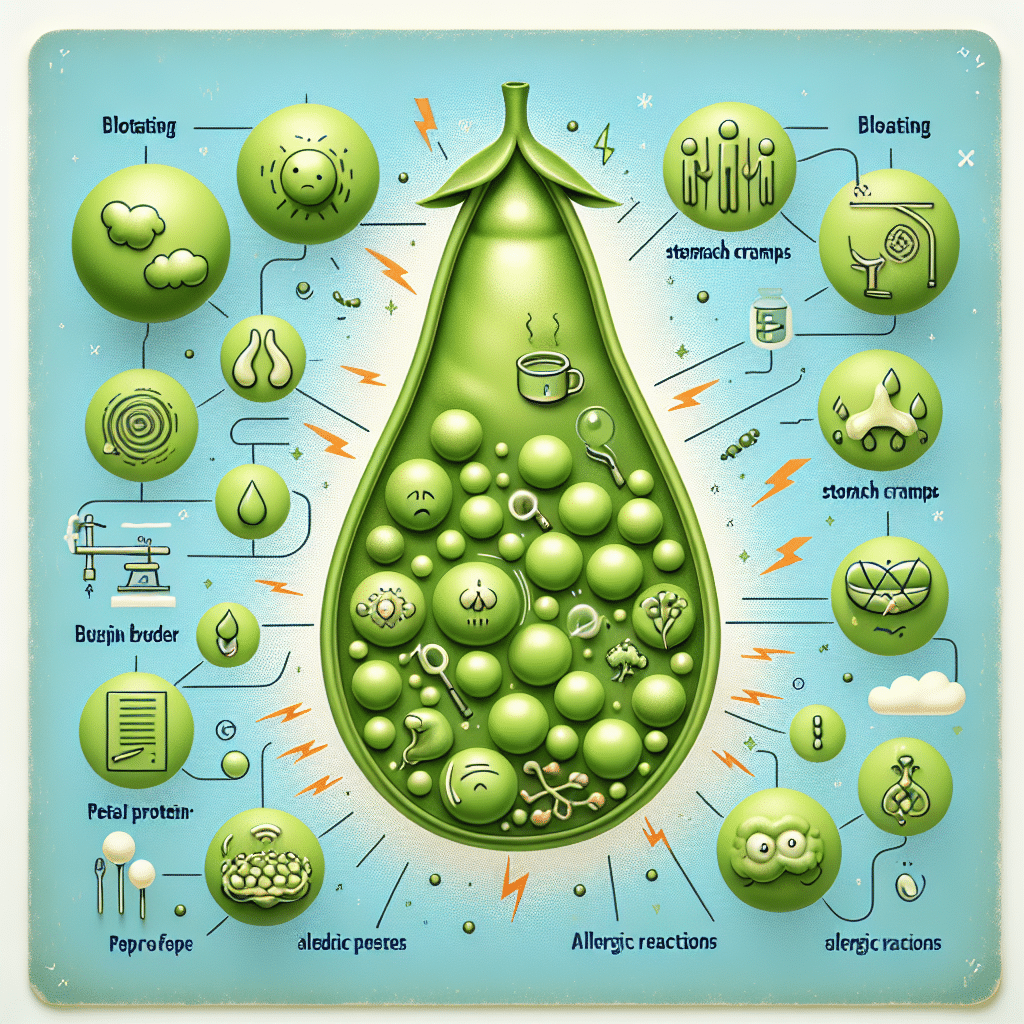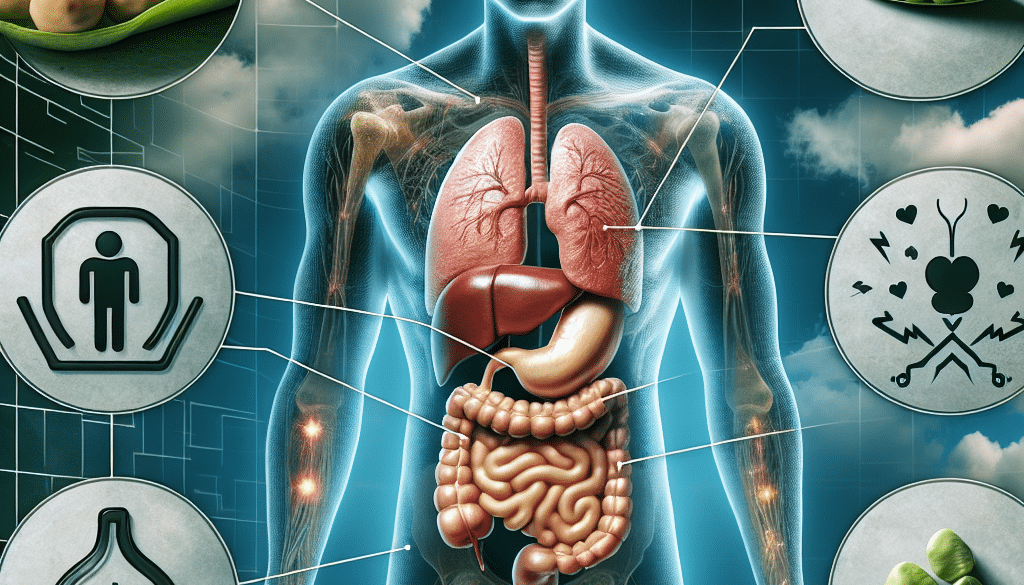What Are The Side Effects Of Pea Protein?
-
Table of Contents
- Pea Protein Side Effects: What You Need to Know
- Understanding Pea Protein
- Potential Digestive Issues
- Allergic Reactions
- Nutritional Imbalances
- Interactions with Medications
- Impact on Kidney Function
- Considerations for Athletes and Bodybuilders
- Environmental and Ethical Considerations
- Conclusion: Balancing Benefits and Side Effects
- Discover ETprotein’s High-Quality Protein Products
Pea Protein Side Effects: What You Need to Know

Pea protein has gained popularity as a plant-based alternative to animal-derived proteins. It’s a favorite among vegans, vegetarians, and those with lactose intolerance or allergies to dairy proteins. However, as with any dietary supplement, it’s essential to be aware of potential side effects. This article explores the side effects of pea protein, backed by research and expert insights.
Understanding Pea Protein
Pea protein is derived from yellow split peas and is a high-quality protein that contains all nine essential amino acids. It’s commonly used in protein powders, meat substitutes, and a variety of health food products. Despite its benefits, some individuals may experience side effects when consuming pea protein.
Potential Digestive Issues
One of the most common side effects associated with pea protein is digestive discomfort. This can include:
- Bloating
- Gas
- Stomach cramps
- Diarrhea
These symptoms may be due to the fiber content in pea protein or individual sensitivities to legumes. To minimize these effects, it’s recommended to start with a small serving size and gradually increase it to allow your digestive system to adjust.
Allergic Reactions
Although pea protein is often marketed as hypoallergenic, some individuals may still experience allergic reactions. Symptoms can range from mild to severe and include:
- Skin rashes
- Hives
- Difficulty breathing
- Swelling of the face, lips, or throat
If you suspect an allergy to pea protein, it’s crucial to discontinue use immediately and consult a healthcare professional.
Nutritional Imbalances
Excessive consumption of pea protein can lead to nutritional imbalances. While pea protein is rich in lysine, it’s lower in methionine compared to other protein sources. Over-reliance on pea protein may require supplementation or a more varied diet to ensure a balanced intake of all essential amino acids.
Interactions with Medications
Pea protein may interact with certain medications, particularly those for thyroid function. Peas are goitrogenic, meaning they can interfere with iodine uptake in the thyroid gland. If you’re on thyroid medication, it’s important to monitor your intake of pea protein and consult with your doctor.
Impact on Kidney Function
High protein diets, in general, can put additional strain on the kidneys. For individuals with pre-existing kidney conditions, consuming large amounts of pea protein may exacerbate their condition. It’s advisable to seek medical advice before incorporating high levels of pea protein into your diet if you have kidney issues.
Considerations for Athletes and Bodybuilders
Athletes and bodybuilders often turn to protein supplements to aid muscle recovery and growth. While pea protein is an excellent option, it’s essential to combine it with other protein sources to ensure a complete amino acid profile for optimal muscle synthesis.
Environmental and Ethical Considerations
While not a direct side effect on health, some consumers choose pea protein for its lower environmental impact compared to animal proteins. However, it’s important to consider the sourcing and production practices of pea protein to ensure they align with ethical and sustainable standards.
Conclusion: Balancing Benefits and Side Effects
Pea protein offers many health benefits, but it’s important to be aware of potential side effects. Most side effects are mild and can be managed by adjusting intake or combining pea protein with other foods. Always consult with a healthcare professional before making significant changes to your diet, especially if you have pre-existing health conditions or are taking medications.
Discover ETprotein’s High-Quality Protein Products
If you’re looking for a reliable source of pea protein, consider ETprotein’s offerings. Their pea protein is characterized by a neutral taste, non-GMO, and allergen-free attributes, making it an excellent choice for those seeking a plant-based protein option.
About ETprotein:
ETprotein, a reputable protein and L-(+)-Ergothioneine (EGT) Chinese factory manufacturer and supplier, is renowned for producing, stocking, exporting, and delivering the highest quality organic bulk vegan proteins and L-(+)-Ergothioneine. They include Organic rice protein, clear rice protein, pea protein, clear pea protein, watermelon seed protein, pumpkin seed protein, sunflower seed protein, mung bean protein, peanut protein, and L-(+)-Ergothioneine EGT Pharmaceutical grade, L-(+)-Ergothioneine EGT food grade, L-(+)-Ergothioneine EGT cosmetic grade, L-(+)-Ergothioneine EGT reference grade and L-(+)-Ergothioneine EGT standard. Their offerings, characterized by a neutral taste, non-GMO, allergen-free attributes, with L-(+)-Ergothioneine purity over 98%, 99%, cater to a diverse range of industries. They serve nutraceutical, pharmaceutical, cosmeceutical, veterinary, as well as food and beverage finished product distributors, traders, and manufacturers across Europe, USA, Canada, Australia, Thailand, Japan, Korea, Brazil, and Chile, among others.
ETprotein specialization includes exporting and delivering tailor-made protein powder and finished nutritional supplements. Their extensive product range covers sectors like Food and Beverage, Sports Nutrition, Weight Management, Dietary Supplements, Health and Wellness Products, and Infant Formula, ensuring comprehensive solutions to meet all your protein needs.
As a trusted company by leading global food and beverage brands and Fortune 500 companies, ETprotein reinforces China’s reputation in the global arena. For more information or to sample their products, please contact them and email sales(at)ETprotein.com today.












